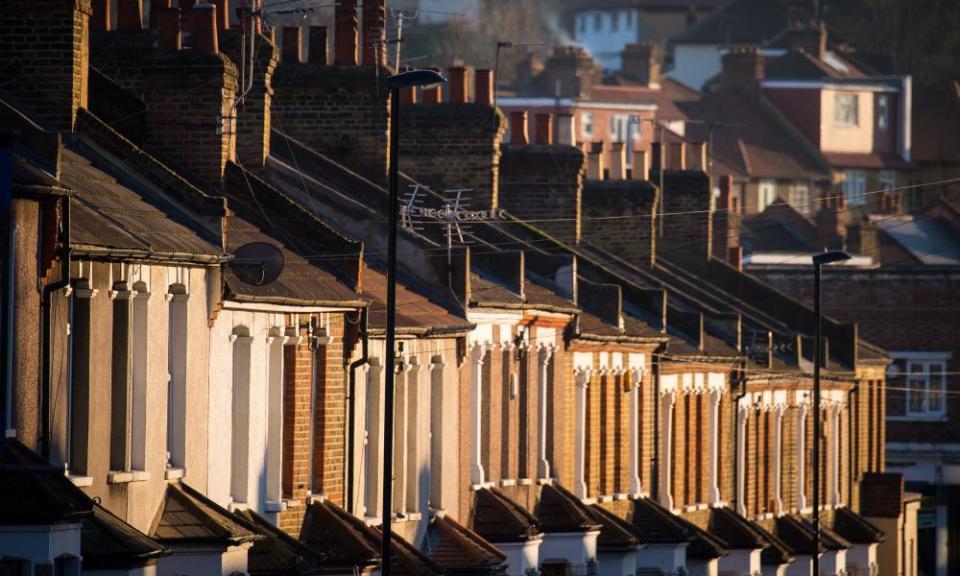Bubble, bubble, toil and trouble: why ultra-low mortgage rates are dangerous | Jonn Elledge

If you’ve ever made the mistake of trying to debate generational inequality with a baby boomer – by pointing out, say, that they benefited from cheap housing, generous welfare and free university places, before voting consistently for governments that have denied those things to their children, all the while calling millennials lazy and entitled in an infuriatingly faux-indulgent way, as if their kids’ requests that their salaries bear some sort of relation to their actual living costs makes them the sort of spoiled divas who’d call a gold-plated Uber to take them to the lavatory ...
Anyway. If you’ve ever had this annoying row with an ageing relative, then you’ll know that they have one last trump card, one last line of defence for their privileges. Interest rates, they’ll say. None of this 0.25% Bank of England rate in our day. We had proper interest rates. You don’t know you’re born.
And it’s not an entirely unreasonable point. Between autumn 1977 and Christmas 1979, interest rates rose from 5% to 17%. If you were a young boomer whose biggest cost was a variable rate mortgage, that would have hurt. In 2009, by contrast, interest rates were cut to a record low of 0.5%, and stayed there for the better part of a decade. When eventually they did move again, it was down. You don’t know you’re born.
Except, of course, you do – because, if you’re reading this and you’re under 40, there’s a pretty good chance you’re still stuck paying rent. Yes, interest rates are low; no, this is not particularly helpful. Even if you do have a mortgage, it’s probably a fixed rate one because, let’s be honest, those rates are going up again one day.
But not, it seems, today. The Yorkshire Building Society has just launched a new mortgage that charges an interest rate of just 0.89%. “We are very pleased to offer borrowers the lowest mortgage rate ever available,” said a spokesman. “The cost of funding has fallen in recent weeks and, as a financially strong building society with no external shareholders to satisfy, we have the ability to pass this on to borrowers.” (“We used to dream of mortgages at under 1%,” say the boomers.)
So does that means that owning a home is now cheaper than it’s ever been? Well, no, of course not. For one thing, this isn’t a fixed rate deal. It’s actually a (bear with me on this) two-year-long discount of 3.85% to the standard variable rate (SVR) of 4.74%. That means it’s very, very unfixed indeed: a normal tracker mortgage moves in response to Bank of England rates; an SVR one moves in response to the lender’s whims. Accepting this mortgage means placing a bet that the Yorkshire Building Society will be nice to you.
It also comes with an unusually high arrangement fee of £1,495, but this shouldn’t bother you, because you probably can’t get that rate anyway. To even be considered, you need a deposit worth 35% of the value of your home.
Bubbles tend to burst. Prices can’t rise forever: one day, interest rates must surely rise
All of which makes me think that YBS’s main motivation for offering the lowest-ever mortgage rate was as a marketing stunt. Fewer people are buying homes. That, in turn means that lenders have to fight harder to get the attention of those still in the market. We all have our targets to hit.
But there’s another, more sinister, reading of the recent rash of ultra-low mortgage rates: it suggests we may be in the latter stages of a bubble. As prices rise further and further out of reach, lenders need to find more and more ingenious tricks to keep rich people pumping their cash into an overheated market. The punch bowl has to keep going round, or the party stops.
But bubbles tend to burst. Prices can’t rise forever: one day, interest rates must surely rise. When the inevitable happens, there is a danger that those who took advantage of this deal may find their equity wiped out – and the rate they’re paying will shoot through the roof.
That would obviously be very sad for those who are affected; for those shut out of home ownership, though, it may be no bad thing. That’s because nine years of record-low interest rates have probably contributed to the fact that house prices have soared out of reach; and higher prices have meant increasingly unattainable deposits. A rise in interest rates could, paradoxically, make housing more affordable.
In other words, interest rates and house prices are two sides of the same coin. Boomers may have faced higher interest rates, but in return they got to buy a house. I’m not saying this was ideal, but ... well, they don’t know they’re born, do they?

 Yahoo News
Yahoo News 